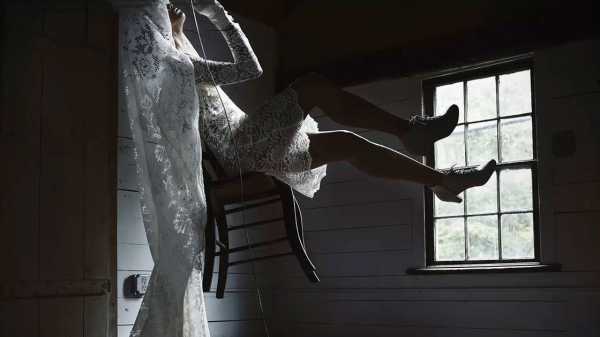
Flight became a secret language for runaway slaves, and it continues to represent black mobility toward liberation.
As an experimental documentarian, I reimagine the function of archives for black women. There are stories the ancestors have buried, and I feel them scratching their way to the surface. Whether these archives have been erased or misplaced, I reconstruct what has been lost by excavating and interrogating oral histories. In the above video, “Dreaming Gave Us Wings,” I explore the legend of flying Africans—a story, existing on the edge of dream and memory, about enslaved Africans who could lift up and fly home.
The story of flying Africans has been passed down from generation to generation since slavery—a secret, suppressed gift of our ancestors. While this myth has evolved over the years, it continues to be the source of imagination that depicts freedom, new futures, and returning to Africa. Rooted in the history of Igbo Landing—a site on St. Simon’s Island, in Georgia, where enslaved people brought from Nigeria revolted and walked together into the marshy waters, rather than be sold into slavery—these stories became both a truth that enabled survival and an oral archive of resistance. Flight became a secret language for runaway slaves, and it continues to represent black mobility toward liberation.
I believe that these stories of flight are rooted in truth. As Toni Morrison said, “The one thing you say about a myth is that there’s some truth in there, no matter how bizarre they may seem.” In her celebrated children’s book “The People Could Fly,” Virginia Hamilton imagines the story of enslaved Africans who remembered and reclaimed their ability to fly, escaping their imprisoned lives. Hamilton believed that “come fly away” and similar phrases were part of the coded language used by African slaves in organizing runaway attempts. In her story, one by one, they embrace their spiritual truth and return to their native form, weightless bodies ascending from the plantation field: “They say the people could fly. Say that long ago in Africa, some of the people knew magic. And they would walk up on the air like climbin up on a gate. And they flew like blackbirds over the fields. Black, shiny wings flappin against the blue up there.”
I began to think about stories that no longer have an oral history. I spent time in archives, and questions started to unfold. What do the archives sound like? What secrets do they hold? Archiving is rooted within colonial practices of preservation; black women and girls have historically been erased from these records. My search deepened as I wondered where the suppressed dreams and histories of black women went. “Historians imprison themselves through their reliance on documents they deem factual,” the historian and scholar Tiffany Ruby Patterson said. “My own training in African history taught me that it is possible to reconstruct the consciousness of a people who left scant written records but had a rich oral tradition.” Patterson’s words gave me much needed hope, to continue the journey of dreaming up a story that was no longer easily accessible.
Sourse: newyorker.com






